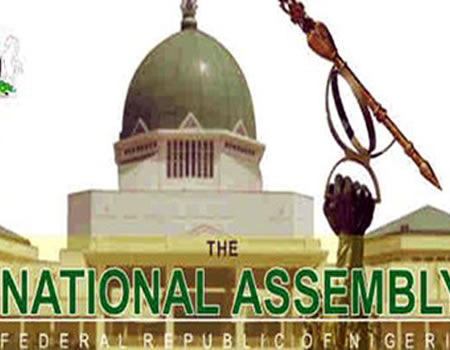This was just as it disclosed that it deliberated on the controversial issue of Joint State and Local Government Account, saying however, that it was yet to reach a conclusion.
Deputy Senate President, Ike Ekeremadu, said this on Saturday, while speaking with journalists at a joint working retreat of Senate and House Representatives Committee on the Review of 1999 Constitution, held in Lagos.
He said the idea of removing such items as railway from the Exclusive List and placing it on on the Concurrent List was to enable states have authorities to build and operate railways, just as he the Federal Government could continue to run the system across the country.
According to Ekeremadu, who is the chairman, Senate Committee on the review of the 1999 Constitution, other items deliberated upon at the retreat were the time frame within which the president could withhold assent to a bill passed by the National Assembly, the time limit to which the executive could cause expenditure in the budget when the appropriation is yet to passed and assented to by the president.
Others, he said, also included the issue of minimum wage, which would grant each state power to determine what it could afford to pay its workers.
He, however, said that contrary to past exercises, each of the recommendations had been broken into bills, contending that this would allow each of them succeed or fail on its own at the debating level at the National Assembly as well as at the level getting the president’s assent for them.
“We have broken all the issues into specific bills. Between yesterday and today, we have looked at about 23 separate bills with separate issues. The idea is to ensure that by the time we vote, each of them succeeds or fails on its own.
“And we will conclude the work and send it to the State Houses of Assembly to approve and we will return it to the National Assembly; then we will collate and ensure that the provisions of the constitution have been fulfilled regarding the alteration. We will then send it to the president for his assent. And the president will decide which one to assent or not to assent.
“Now, we have gone through some specific issues like the time frame within which a governor or president will be able to assent to a bill. If you look at our constitution, I think Section 58, if you pass a bill, you need to send it to the president for his assent and he has to assent it within 30 days. But the law did not state what will happen if after 30 days he fails to assent to it.
“The other issue is the time frame within which the president can authorise expenditure from the revenue fund of the federation or state as the case may be in the case of governors where they have to pass Appropriation Bills. The argument is that the constitution as it is today, if budget had not been passed, the president or governor can authorise expenditure up to six months into the year.
“We feel that is too long, because the problem there is that that is why the executive will not bring the budget on time, because they believe that the previous budget was not quickly dispensed with. And so the National Assembly take their own time, now there will be the grace of up to three months because you cannot operate the previous budget beyond three months of the year.”
With that the executive will now be compelled to bring the budget beyond three months into the year and the national assembly will now be compelled to pass the budget not beyond the three months into the year.
“We also tried to withdraw some to power from the Exclusive List to the Concurrent List. You know we have been talking about the restructuring of Nigeria, one of the components of restructuring is that they are saying that there is too much power in the hands of the Federal Government and we need to strip some of them from the Federal Government.”
On the issue of Labour, the deputy senate president maintained that the National Assembly was also considering moving it from the exclusive list.







